MercoPress. South Atlantic News Agency
Politics
-
Sunday, January 26th 2014 - 04:15 UTC
Brazil: Hundreds protest against the World Cup

Waving flags, carrying banners and chanting “there will be no Cup” at least 1,000 demonstrators protested in Sao Paulo on Saturday against the World Cup that Brazil will host later this year in a demonstration that devolved into violence late in the night.
-
Saturday, January 25th 2014 - 03:25 UTC
Argentina rolls back dollar restrictions hoping to contain market volatility; Monday test day

Argentina lifted on Friday restrictions on personal US dollar purchases for citizens, ending a prohibition on greenback savings that began at the end of 2011. The new measures, which occur one day after both the official and parallel 'blue' dollar saw record rises, were announced in a short press conference by Cabinet Chief Jorge Capitanich and Economy Minister Axel Kicillof. The measures become effective from Monday onwards.
-
Saturday, January 25th 2014 - 00:28 UTC
Mantega insists that the Mercosur/EU trade agreement includes Argentina
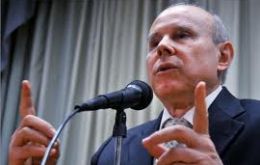
Mercosur is preparing for trade negotiations with the European Union and they include Argentina, said on Friday Brazilian finance minister Guido Mantega at the World Economic Forum taking place in Davos, Switzerland. The comment seems to contradict other recent statements which said the trade deal with the EU will go forward with or without a reluctant Argentina.
-
Friday, January 24th 2014 - 03:35 UTC
Mercosur/EU with their own problems still don't have a date to continue negotiations

Mercosur and the European Union continue to work on their tariff reduction proposals list but have no scheduled date for negotiators to meet and advance on a long delayed trade agreement according to Uruguayan diplomatic sources. However what is certain is that when the date is agreed it will be clear if Mercosur consensus proposal will include all founding members of the group.
-
Friday, January 24th 2014 - 03:33 UTC
Ecuador airline suspends flights to Venezuela because of tickets' debts
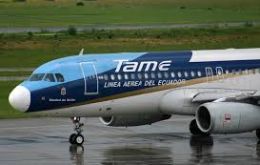
Ecuadorean airline Tame has suspended flights to Venezuela, demanding 43m dollars in overdue payments for tickets. Some 80 passengers were left stranded on Thursday at the airport in the Ecuadorean capital, Quito. Tame says the Venezuelan Central Bank has not transferred any money to its account in Ecuador since April 2013.
-
Friday, January 24th 2014 - 03:31 UTC
Discos are common in Venezuelan penitentiaries, admits minister

Discotheques have long operated inside Venezuelan penitentiaries, the head of the country's prison service said Thursday in response to a public uproar over the death of a young man after partying at a disco behind bars.
-
Friday, January 24th 2014 - 02:15 UTC
Argentina: in chaotic trading dollar jumps 12.4% in one day to 8 Pesos in the official market
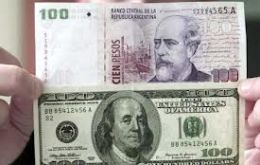
In a day of chaotic trading the Argentine Peso on Thursday again plummeted against the US dollar losing 12.4% of its value in the official market, ending the day at just over 8 Pesos. In earlier operations the dollar was selling at 8,31 Pesos until the Central bank decided to intervene helping to cool the market.
-
Friday, January 24th 2014 - 02:09 UTC
Argentine 2013 trade surplus down 27%, helping with the dollar shortage
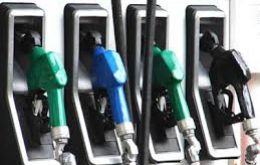
Argentina's trade balance during 2013 left of surplus of 9.24 billion dollars, 27% less than in the previous year (12.42bn), according to the latest release from the official stats office, indec. Exports in the past year grew by 3% to reach a value of 83bn dollars, while imports rose by 8% and totaled just over 74bn.
-
Friday, January 24th 2014 - 02:07 UTC
Blatter confident it will be a great Cup, after meeting Brazil president Rousseff
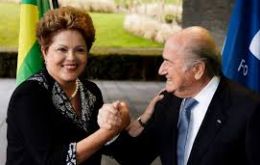
FIFA president Sepp Blatter played down concern about sluggish World Cup preparations on Thursday, even when his deputy warned Curitiba must prove it can finalize work to remain a venue. Blatter met visiting Brazilian President Dilma Rousseff at FIFA headquarters in Zurich and the pair both made positive noises about Brazil's ability to deliver come the big kick-off on June 12.
-
Thursday, January 23rd 2014 - 23:36 UTC
Argentina after Israeli fighter planes; concern in London and Brasilia, says defense expert
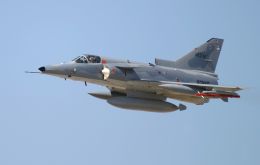
Argentina is considering the purchase from Israel of 18 multipurpose combat aircraft Kfir Block 60 after negotiations with Spain for 16 Mirage F1 fighter bombers fell through, according to a report from Buenos Aires daily Clarin.
